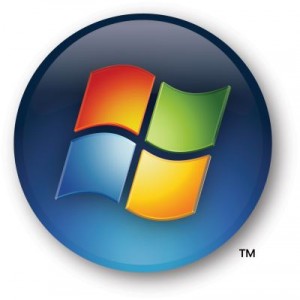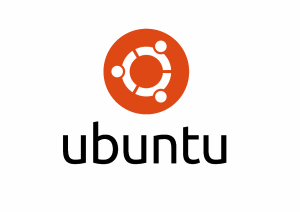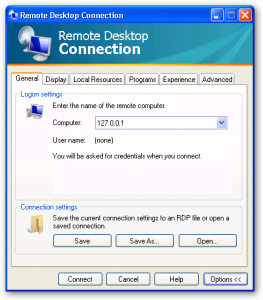I get emails from training facilities at work all the time but today I got this interesting article from Global Knowledge talking about the most important IT skills right now. In reading this list I know that in real life these are critical skills for all enterprises. See how you score for these top 10 skills. I have some work to do I see.
There are many skills that IT services professionals should know about in doing their day-to-day jobs. That is one of great benefits of being in the IT industry – learning new platforms and products as they are released. The following list has many of the most common ones that most IT Pros should have. While there are ten skills listed, they are not in an ordered ranking. Depending upon the size of the IT infrastructure and environment, some of these might not be applicable.
1. Troubleshooting
Is this a skill, an art, or both? If you ask any seasoned IT professionals, they will tell you that troubleshooting skills are important, very important – and not something that can be readily taught. The difficult part is that troubleshooting is a specific skill set that many corporations simply do not have the time or money to invest. Troubleshooting skills could make or break your career. Not having the required troubleshooting skills could become a RGE (resuming generating event), or it could become a career enhancer when you are able to fix a mission-critical server. All of this being said, one would think that there would be more emphasis on teaching and sharing troubleshooting skills; unfortunately, this is not the case. This is one skill that must be learned only after mastering a particular platform or program.
2. PowerShell and Scripting
No, you don’t have to be a programmer to be a successful network engineer (or vice-versa for that matter), but you do have to know PowerShell. More platforms from Microsoft (Exchange 2007 and Exchange 2010 have some features that can ONLY be implemented with PowerShell) are managed through PowerShell – including the recently released SharePoint 2010. Being able to script many day-to-day tasks will make more time available for proactive tasks.
3. Networking and Interoperability
Interoperability is the key to networking. We live in a highly connected world, a world of disparate platforms. Networking is understanding how to make these platforms communicate. As an IT Pro (and this includes programmers to a certain extent), you must understand the communications protocols, OSI Model layers, and connectivity required for systems to communicate. This also includes understanding connecting and securing wireless networks. This is one skill that is common to almost all IT Pros, whether they are programmers, security personnel, auditors or the help desk personnel.
4. Virtualization
It doesn’t matter which Virtualization technology you use (Microsoft’s Hyper-V, VMware, or even Sun’s VirtualBox), it is the use that is important. Virtualization is being adopted by companies of all sizes as a means to reduce costs through consolidation of servers and lower cooling requirements. Application Virtualization has become very popular with businesses. Having the skill set to deploy applications that connect securely through a browser is critical for companies that have numerous offices.
Virtualization can aid in near real-time response to network conditions by providing for more disaster recovery capabilities. Another interesting area of virtualization is through the use of desktop virtualization. This involved configuring and maintaining the virtual environment whereby users can connect to their own virtual desktop remotely or through the web. Another use for virtualization is for improved instruction for IT education and elsewhere, since there is no longer a need to have large numbers of computers for classrooms.
5. Wireless
As part of our highly connected world, we expect to able to connect wirelessly from almost anywhere at any time. Those IT Pros who can install, configure, and maintain secure wireless networks have a skill that is in high demand. The key word here is secure wireless network. IT Pros with this skill set are in high demand as we expect to be able to securely connect to wireless networks in almost all locations at any time. Implementing a secure wireless environment also means being able to plan and troubleshoot interferences as well. Anyone managing wireless environments must be able to handle the calls that come in from remote users who are having problems with their wireless equipment, and different operating systems capabilities and limitations.
6. Disaster Recovery
This is as much a methodology as a skill set. IT Pros must be able plan, test, and implement a disaster recovery (DR) plan. This is critical for the survivability of a data center or network. One of the hardest tasks is being able to test disaster recovery plans. There is hardly enough time available to perform the critical tasks that need to get done while adding a yearly or semi-yearly test of the DR plan. An integral part of the disaster recovery process is implementing fault-tolerant systems and providing for redundancy in your network. If you need the help of data protection services for your data protection, look for Venyu .
7. Security
All IT Pros must have a good understanding of both physical and electronic security. One of the most difficult tasks with IT security is educating users. Company information can be gleaned through social engineering that most companies would rather not have divulged. Training users (and IT staff) to be cognizant of and prevent social engineering is extremely difficult. IT Pros must always be aware of security issues and understand the vulnerabilities within their networks (from operating systems, servers to the lowly cable closet). This does not mean that every IT Pro must be able to perform a penetration test against his or her own network, but they must understand and prevent attacks against their network.
8. Database Administration
Corporations retain more information than ever before and are quite dependent on their databases. Regulatory compliance has had a huge impact on database management and data retention. Corporations are required to retain information for a number of years and, in some cases, emails as well. Storage space and solutions have become much cheaper, so there is more emphasis on data retention. Having the ability to create and extract information from one of these databases is critical. Many IT Projects use a SQL backend, Archiving information from Microsoft’s Office Communication Server requires a SQL backend. If you are going to deploy Microsoft Office SharePoint Server (MOSS), this will require a SQL backend. IT Pros these days do not need to be DBAs, but they must be able to administer and maintain these servers. There are several database systems commonly used: SQL, Oracle, and MySQL.
9. Desktop Imaging
Imaging of desktop systems is a critical skill as companies are shifting to standardized desktops and deployments. Part of this is done to deploy a consistent and secure platform as well as to provide ease of management. There are many imaging programs available, as well as Microsoft’s Windows Deployment Services and imaging utilities.
10. Helpdesk (People Skills)
One of the most critical skills that IT Pros need to learn is how to interact with non-technical people. The Help Desk is the first interaction most users have with the IT department, and it should be a positive experience. IT Pros are very good at their jobs, but sometimes lack the ability to relate to their non-tech colleagues. Users just want their computers fixed or their data recovered; they are not concerned with the processes behind our actions. IT Pros should have some experience working at the Help Desk.
These are some of the most important skills that an IT Pro should know. If you don’t know some of these areas, now is the time to learn them. One thing to keep in mind is that you are your own best career manager! You are the only one who can decide where you want to head your career.





